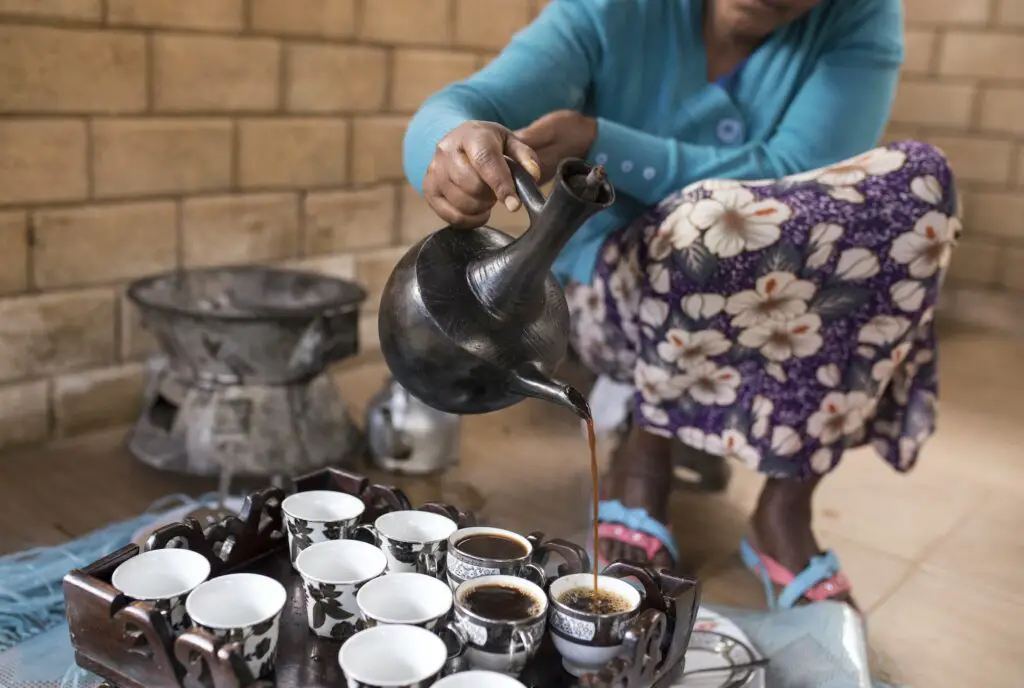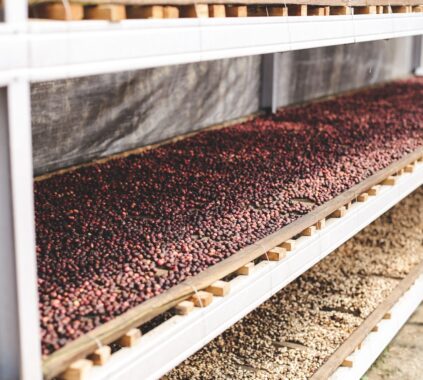Ah, coffee! Is there anything more satisfying than a cup of freshly brewed java to kick off your day? For many people, coffee is more than just a drink; it’s a way of life. And with such a rich history and diverse range of flavors, it’s no wonder that coffee has become an integral part of cultures around the globe. In this article, we’ll take a whirlwind tour of some of the most unique coffee cultures in the world, diving into their histories, brewing techniques, and the impact they’ve had on communities.
Table of Contents
The Rich History of Coffee
Ethiopia: The Birthplace of Coffee
Legend has it that coffee was first discovered by an Ethiopian goat herder named Kaldi, who noticed that his goats became energetic after eating the cherries from a certain tree. Fast forward to today, and Ethiopia remains one of the world’s largest coffee producers, with its unique beans prized for their fruity and floral flavors. The traditional Ethiopian coffee ceremony, which involves roasting, grinding, and brewing coffee by hand, is still an important part of the country’s culture and hospitality.

Spreading Across the Globe
Coffee spread from Ethiopia to the Arabian Peninsula, where it became popular in the Islamic world. From there, it made its way to Europe, and then to the Americas, transforming the global economy and local cultures along the way.
Distinct Coffee Cultures
Italy: Espresso and Beyond
When you think of Italian coffee, it’s hard not to picture a steaming cup of espresso, sipped at a bustling café. Italian coffee culture revolves around espresso, which forms the basis for other popular drinks like cappuccinos and lattes. The Italian tradition of standing at the bar and enjoying a quick espresso shot is still prevalent today and serves as a social touchstone for locals and visitors alike.
Turkey: A Symbol of Hospitality
Turkish coffee is famous for its thick, rich taste and unique brewing method. This strong coffee is often served with a glass of water and a piece of Turkish delight, highlighting the country’s penchant for hospitality. In Turkey, the art of coffee-making is a time-honored tradition, and sharing a cup with friends or family is an important social ritual.
Brazil: A Coffee Powerhouse
As the world’s largest coffee producer, Brazil has had a significant impact on global coffee culture. Brazilians enjoy their coffee strong and sweet and often start their day with a “cafezinho,” a small cup of black coffee with sugar. In addition to its impact on the world’s coffee supply, Brazil has also played a pivotal role in the development of sustainable coffee farming practices, helping to ensure that future generations can continue to enjoy this beloved beverage.
Vietnam: Sweet and Strong
Vietnamese coffee culture is characterized by its distinct flavors and unique brewing techniques. The most famous Vietnamese coffee is the “cà phê sữa đá,” or iced coffee with sweetened condensed milk. The result is a rich, velvety drink that perfectly balances the strong, dark roast coffee with the sweetness of the milk. Vietnamese coffee shops, which often serve as social hubs, are also known for their slow-drip brewing method, which allows patrons to savor their coffee while catching up with friends.
United States: The Rise of Specialty Coffee
In recent decades, the United States has experienced a specialty coffee revolution, with artisanal roasters and independent coffee shops popping up in cities and towns across the country. This movement has brought a new level of appreciation for quality coffee, with an emphasis on sourcing beans from ethical and sustainable sources, experimenting with unique flavor profiles, and perfecting brewing techniques to create the perfect cup.
Unique Brewing Techniques
The Turkish Coffee Pot
The traditional method for brewing Turkish coffee involves a small, copper pot called a “cezve.” Finely ground coffee and sugar are combined with water and heated in the cezve until the mixture begins to froth. The coffee is then poured into small, demitasse cups and allowed to settle before it’s enjoyed.
The Italian Moka Pot
The Moka pot, invented in Italy in the 1930s, is a stovetop coffee maker that brews coffee by passing boiling water through the coffee grounds under pressure. The result is a concentrated, espresso-like coffee that’s often enjoyed as a morning or afternoon pick-me-up.
The French Press
The French press, also known as a plunger or press pot, is a popular method for brewing coffee that involves steeping coarsely ground coffee in hot water before pressing the grounds to the bottom of the pot with a mesh plunger. This brewing method allows for a full-bodied, flavorful coffee, making it a favorite among coffee aficionados.
The Pour-Over Method
Pour-over coffee is made by pouring hot water over coffee grounds in a slow, steady stream, allowing the water to extract the coffee’s flavors as it passes through the grounds and into the cup below. This method, favored by specialty coffee shops and enthusiasts, results in a clean, bright flavor profile that highlights the unique characteristics of each bean.
The Aeropress
The Aeropress, a relatively recent invention, is a compact, portable brewing device that combines elements of both the French press and pour-over methods. Coffee is steeped in hot water before being forced through a fine paper filter, creating a smooth, rich cup with less bitterness than traditional brewing methods.
The Impact of Coffee on Communities
From the bustling streets of Rome to the vibrant cafes of Hanoi, coffee has played a vital role in shaping communities around the world. It has fostered social interaction, driven economic development, and given rise to countless traditions that help define a culture’s identity.
The Future of Coffee Culture
As global interest in coffee continues to grow, we can expect to see even more innovation in the world of coffee production, brewing techniques, and the exploration of new flavors. Sustainability will remain a crucial focus, ensuring that coffee can continue to be enjoyed by future generations while minimizing its environmental impact.

Explore
A world of flavor awaits those who are willing to venture beyond their local coffee shop and explore the rich tapestry of coffee cultures around the globe. From the birthplace of coffee in Ethiopia to the bustling cafes of Italy, each country and region has its own unique approach to enjoying this beloved beverage. As you immerse yourself in these diverse coffee traditions, you’ll not only discover new flavors and brewing techniques, but you’ll also gain a deeper appreciation for the communities that have been brought together by their shared love of coffee. So, grab your passport and your favorite mug, and let’s embark on a journey of caffeinated discovery that knows no borders!
Frequently Asked Questions
What is the origin of coffee?
Coffee is believed to have originated in Ethiopia, where it was discovered by a goat herder named Kaldi. Since then, it has spread across the globe, becoming an integral part of many cultures and traditions.
How do coffee cultures differ around the world?
Coffee cultures vary greatly in terms of flavor preferences, brewing techniques, and the role coffee plays in daily life. From the strong, sweet coffee of Vietnam to the social ritual of the Italian espresso, each culture has developed its own unique approach to enjoying coffee.
What are some popular coffee brewing methods?
Some popular coffee brewing methods include the Turkish coffee pot, Italian Moka pot, French press, pour-over, and Aeropress. Each method results in a distinct flavor profile and brewing experience.
What is specialty coffee?
Specialty coffee refers to high-quality coffee that has been sourced from ethical and sustainable producers, roasted, and brewed with care to highlight the unique flavors of each bean. It often involves experimenting with different brewing techniques and flavor profiles to create a truly exceptional cup of coffee.
How has coffee impacted communities around the world?
Coffee has played a significant role in shaping communities worldwide by fostering social interaction, driving economic development, and giving rise to countless traditions that help define a culture’s identity.
Daily Demitasse is a participant in the Amazon Services LLC Associates Program, an affiliate advertising program designed to provide a means for sites to earn advertising fees by advertising and linking to Amazon.com. We also participate in other affiliate programs which compensate us for referring traffic.














